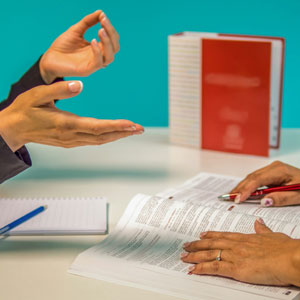Wills & Estate Planning Lawyer In Pittsburgh, PA
 Finalizing a will, also known as a last will and testament, shows a commitment to your family members and the other important people in your life. It provides you the opportunity to be in charge of who will receive your possessions in the event of your death, as well as peace of mind, knowing you’ve done all you can to take care of your loved ones.
Finalizing a will, also known as a last will and testament, shows a commitment to your family members and the other important people in your life. It provides you the opportunity to be in charge of who will receive your possessions in the event of your death, as well as peace of mind, knowing you’ve done all you can to take care of your loved ones.
The experienced will and estate lawyers at Biernacki & Associates can help you draft your will to ensure your loved ones are taken care of after you are gone. Call (412) 557-7726 today to schedule your free estate planning consultation.
What Is The Process For Filing A Will In Pennsylvania?
After a person passes away, their estate executor must file the deceased person’s will during the probate process. The executor, or personal representative, should be named in the will and is the administrator who handles the estate after the person passes away.
As the executor, the first step in the probate process is to get in touch with the county court and file a petition to begin the probate process. From there, the executor must file the deceased person’s will with the Register of Wills located in the county where they were a resident, along with other documents.
It is best to work with a wills attorney to make the probate process as easy as possible. Beyond assisting with creating wills, an estate planning lawyer can also offer guidance to estate executors and loved ones of the deceased. For instance, a wills attorney can help you understand the next steps of the probate process, and what happens after you file the will.
What Happens If You Don’t Have A Will?
If you do not have a will when you pass away in Pennsylvania, then your estate goes into intestate status and your property will be distributed by the rules set forth by the Commonwealth. These rules are designed to evenly distribute your assets amongst your living relatives, but this doesn’t always align with how you would choose to divide your possessions.
Working with a certified will attorney, you can safeguard your wishes upon your death. You will be able to
- specify people or organizations who should inherit your property,
- identify a personal guardian to care for your minor children,
- select a responsible party to oversee property that you may leave to your minor children, and
- stipulate who should be the executor of your estate, the person entrusted to see to it that the terms of your will are executed.
Should I Have My Will Notarized In Pennsylvania?
It is not a requirement to have a notary sign your last will and testament, but to avoid hassle in executing your will after your death you may consider taking extra steps to solidify your will as self-proving.
After working with your wills law specialist to draft your will, you must finalize it by signing a hard copy of the document. To ensure your will is considered self-proving during probate, you should sign the will in the presence of two witnesses. Then, in the presence of a notary, you will each sign a declaration stating who you are and that your will was signed in the presence of these witnesses. The notary will then certify your claims.
Taking this extra initiative to make your will self-proving will speed up the process of carrying out your wishes when the time comes, by negating the need to have witnesses attest to the validity of your will.
Last Will And Testament Attorney, Pittsburgh, Pennsylvania
The will and estate lawyers at Biernacki & Associates have years of experience guiding clients through the estate planning process. They provide each client with a one-on-one, personalized strategy, to help you protect your assets and stay in control of your estate. Contact them today for your free consultation.

Call Us Today For A Consultation!
(412) 557-7726




